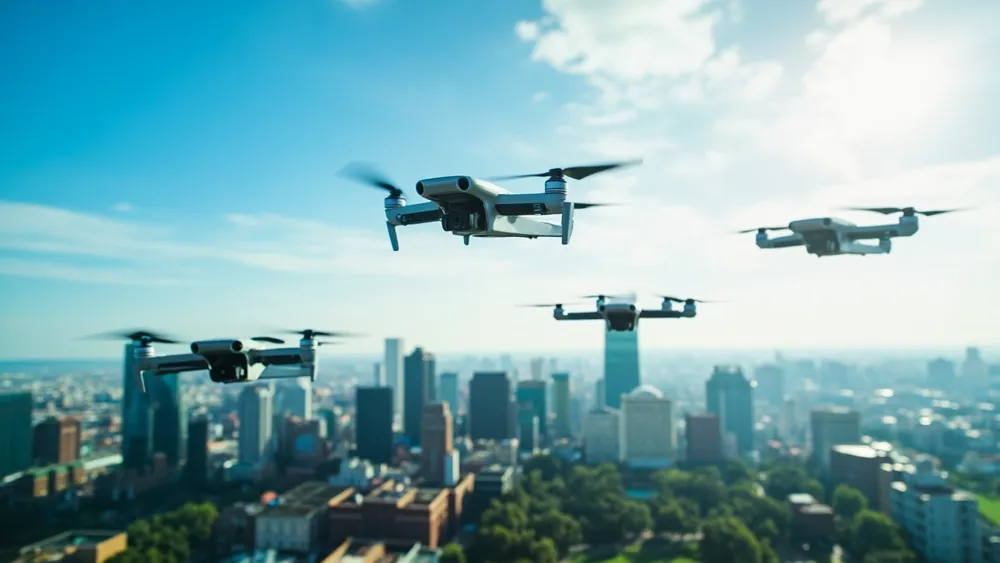Drones Take Flight: Revolutionizing Entertainment and Urban Environments

The rise of drone technology is capturing the imagination of many and transforming various sectors of society, particularly entertainment. As these unmanned aerial vehicles (UAVs) become more sophisticated and accessible, they are not only reshaping how we approach commercial endeavors but also offering innovative avenues for performance art and urban planning. The intersection of drone technology with entertainment is significant; it demonstrates the creative potential of technology and challenges us to rethink how we experience art and public spaces. From drone light shows that dazzle audiences at major events to staged performances where drones interact with live artists, this technology is fast redefining the boundaries of creativity.
Drones operate based on a series of mechanisms that include flight control systems, onboard sensors, and communication technologies. Flight control systems allow drones to maintain stability in the air and execute precise movements, while sensors help them navigate obstacles. For instance, during a drone light show, a fleet of drones can synchronize their movements to form intricate patterns in the sky. The success of these performances relies on the integration of advanced technology with artistic vision, emphasizing a multidisciplinary approach that merges engineering with artistic expression. Additionally, urban planners are starting to consider how drones can enhance public engagements, such as utilizing aerial displays to commemorate local culture and history within city landscapes.
A striking example of drones in action can be seen during the opening ceremony of the 2018 Winter Olympics in Pyeongchang, where 1,200 drones lit up the night sky, creating breathtaking visuals that captivated millions around the globe. Such new forms of entertainment not only thrill audiences but also invite reflection on how technology can elevate traditional artistic experiences. Additionally, this innovation leads to broader conversations about the implications of drones on our urban environments. As drones become integrated into more public spaces, it raises questions about regulations, privacy, and environmental impacts. A potential pitfall is the over-commercialization of aerial shows at the expense of traditional arts, leading some to fear a loss of cultural authenticity. Nevertheless, the advancements in drone usage signal a promising evolution, urging artists and technologists to collaborate and explore the future of entertainment.
Read These Next

The Necessity of 'Revolutionary' Cooling Technology
This article explores the urgent need for innovative cooling technologies as climate change exacerbates global temperatures, discussing traditional methods' environmental impact and the promising advancements in sustainable cooling solutions.

Wang Ziru Reflects on Low Point After Leaving Gree
Wang Ziru shared leaving Gree was a low point, but he now seeks AI content creation to aid digital transformation in industries.

The Potential Consciousness of AI and Its Implications for Humanity
The article delves into the intriguing topic of AI consciousness, exploring its current research, implications for technology and society, and the philosophical questions it raises. Readers are invited to consider the difference between simulation and genuine consciousness, as well as the ethical concerns surrounding AI interactions.
